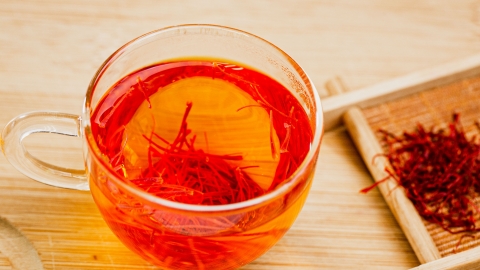Does saffron lower or raise blood pressure?
Generally speaking, saffron does not have the effect of lowering or raising blood pressure. Detailed analysis is as follows:

The primary benefits of saffron focus on promoting blood circulation, relieving tension, and calming the mind. It does not contain active ingredients or have a clear mechanism for directly regulating blood pressure. From both traditional applications and modern research perspectives, saffron's effects mainly revolve around enhancing circulation and improving local blood flow. These mechanisms are entirely different from those directly acting on blood vessels or the heart to regulate blood pressure. Furthermore, there is no reliable evidence indicating that saffron has any targeted influence on blood pressure levels. Therefore, it should not be regarded as a beverage or ingredient for regulating blood pressure.
When consuming saffron tea daily, it is important to understand its intended调理 (regulatory) scope. Do not mistakenly use it as a substitute for professional interventions aimed at blood pressure management. Individuals with abnormal blood pressure should strictly follow medical advice for proper management and should not rely on saffron to improve their condition. Consumption of saffron should be controlled in quantity, with 3–5 threads per serving being sufficient. It is strictly contraindicated for pregnant women, women during menstruation, and individuals with bleeding tendencies. If any physical discomfort occurs after consumption, discontinue use immediately and consult a healthcare professional.






